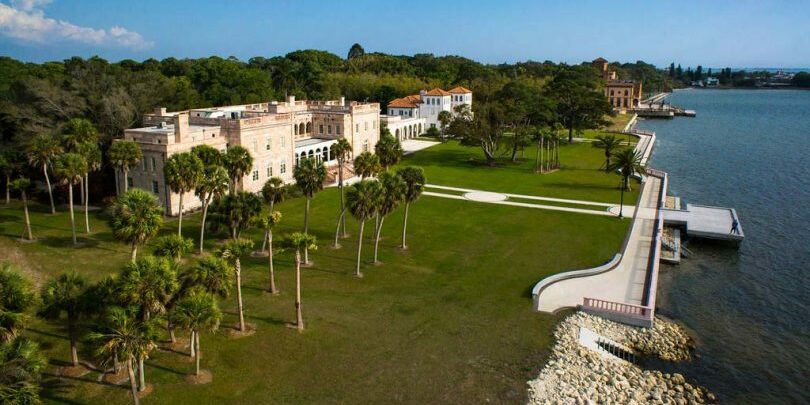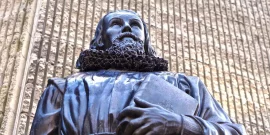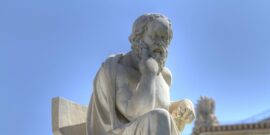The purpose of liberal education is to illuminate how one ought to use the liberty you possess properly.
Liberal Arts and the Future of the University
After decades of conservatives bemoaning the moral decline of the university, there is now widespread agreement that serious reforms are needed. The last couple of years have seen a proliferation of thoughtful, strategic, and bold efforts to reform or rebuild higher education. Some are more defensive in nature, such as steps to eliminate Diversity, Equity, and Inclusion (DEI) offices from public universities. Others aim to build better institutions—whether through new institutional leaders or founding of new universities altogether.
These efforts are often portrayed in the media as “conservative” reactions to “liberal” or “progressive” university policies and culture. The leaders spearheading these reforms—chief among them Florida governor Ron DeSantis—are indeed self-described conservatives. This is not an accurate framing of the issue, though.
As Manhattan Institute senior fellow and New College of Florida Board member Christopher Rufo recently noted in the New York Times, the real dichotomy is between those who understand the university to be a place of truth-seeking and those who understand it as a vehicle for social-justice promotion. This distinction is rooted in the disagreement between modern and post-modern thought: whether there is a truth to be uncovered, or whether there is no truth but only power. If there is no text but only narrative, then—so the argument goes—it is up to those who understand to change the narrative and undermine reigning power structures and social institutions. Higher education reforms that seek to turn institutions’ focus away from promoting social justice and instead toward the dispassionate pursuit of truth, where individuals are judged by the quality of their ideas, are indeed in the spirit of a liberal arts education.
Some at the forefront of these efforts have made comments, however, that ought to give liberty-loving conservatives some pause. Consider, for example, the reported comments of the then-Florida Speaker of the House, remarking on the passage of Florida’s 2022 Postsecondary Education Bill (Senate Bill 7044):
[Chris] Sprowls said it would prevent students from signing up for a class on “socialism and communism” when they thought they were signing up for “Western democracy” and classes about “what it means to be an actual American.”
The implication is that critics of or alternatives to Western democracy should not be examined in a class on the subject. But how can students understand the American regime, its strengths and limitations, and what civic flourishing requires, if critics of democracy are not carefully examined? That an elected state official involved in higher education reform would make such a suggestion makes clear how easy it would be for reforms to go too far—to become dogmatic and illiberal, in a manner that would diminish rather than cultivate the next generation’s appreciation for our form of government.
Given the interest in reforming and rethinking higher education, now is the time to carefully consider the purpose and potential of a properly structured university and liberal arts education. An examination into what higher education ought to consist of and what its goals ought to be can help provide important guardrails to ensure reform efforts remain liberal in nature and sound in scope. And if some institutions decide to veer away from a liberal arts model in favor of an alternative—vocational or religious training, for example—at least they will do so with open eyes as to the costs.
Both history and past thinkers who thought deeply about these matters are apt guides for such an examination. Charles S. Peirce, the founder of American pragmatism, is one such thinker to consult. As a late modern philosopher of science, he wrestled with articulating a defense of the pursuit of truth in a post-Kantian age—in an age of extreme skepticism in our ability to know the world around us. In political and practical matters, Peirce was also a self-described conservative who gave much consideration to the role of the university and a proper liberal arts education in shaping leaders of a modern republic. His questions are still very much live questions for us today.
Peirce is perhaps best known for his epistemological maxim, the defining precept of American pragmatism:
Consider what effects, which might conceivably have practical bearings, we conceive the object of our conception to have. Then, our conception of these effects is the whole of our conception of the object.
He articulated a human-centered but objective notion of truth. There is a reality to which we have access, and which does not depend on particularities of individual perception. By testing hypotheses against the world and building on and critically examining existing theories, the community of scholars uncovers this reality.
Peirce was writing and teaching at an earlier inflection point for American universities. In the late nineteenth century, the Humboldtian research university model was introduced on our shores, first at Johns Hopkins (where he taught) and soon after at schools like the University of Chicago. Such an orientation was in stark contrast to that of the Ivies, which began as schools of theology and for the purpose of training religious figures. The introduction of this new model raised fundamental questions for institutions and scholars alike about the purpose of a university, of what education ought to consist of, and the connection between scholarship and the public good.
Peirce weighed in on the debate by arguing that an education in the liberal arts was the best way to train citizens and future statesmen for practical decision-making and political leadership. Peirce understood a proper liberal arts education to center around the subjects of the medieval trivium—the study of logic, grammar, and rhetoric. It is one that involves extensive reading, examining multiple points of view, and training in the analytical methods of observation and experimentation. Such an education promotes mental strength, flexibility, and openness. It cultivates, in short, “the art of thinking.”
This is not to say that Peirce thought academic inquiry neatly translates into or provides easy maxims for living—in fact, quite the opposite. Peirce warned that theoretical inquiry is a bad guide for practical decision-making because it is too unsettled. Science is an activity of progressive discovery. Its propositions at any given time have the strength of past inquiry and may always give way to future experiments or theories. They are necessarily provisional. The study of logic and the scientific method, in fact, ought to lead to intellectual humility.
It is for this reason that Peirce was a conservative on practical matters. He taught it would therefore be “unwise” and “exceedingly dangerous” for man to base his conduct in life on the conclusions of pure reason. By the same token, separating theory and practice is essential for genuine scholarly inquiry: a scholar needs to be able to pursue doubt where it leads, without fear of the immediate practical implications.
When it comes to practical decision-making, tradition, custom, and instinct are the proper guides. They have, after all, been honed through time in accordance with human nature and the external world—they are the results of “sentimental induction summarizing the experience of all our race.”
A republic will benefit when its citizens—and especially its leaders—have been formed by a genuinely liberal education.
Given this practical conservatism, why did Peirce think that society’s leaders need sharpened critical thinking skills? Why is teaching tradition alone not enough? Old wisdom is not enough because, first, change is inevitable—chance drives evolution. Old traditions and lessons cannot always be applied straightforwardly to new situations that are bound to arise.
Secondly, tradition alone is not sufficient because tradition is not infallible. Peirce cited the example of suttee to illustrate that tradition can be horrifyingly flawed. Indeed, he says, the example of burning a widow alive on her husband’s funeral pyre raises doubts regarding the soundness of the conservatism he has expounded: it “tempts” the conservative “to become a radical” and reject all received wisdom. Evidence that tradition can be flawed does not dissuade Peirce from his conservatism, though it does temper his conservatism with the recognition that tradition might sometimes need to be discarded. As in his epistemological claims, Peirce showed humility in his practical conservatism as well.
Good judgment is needed to navigate new situations and flawed customs. How does a proper liberal arts education aid in forming this good judgment? A flexible and well-trained mind, as developed through the study of logic and training in analytical methods, sharpens one’s faculties. This aids in decision-making but is by itself not enough. Prudence is also required when critically examining what to maintain and what to reject from received wisdom. Prudential judgment can be cultivated in an environment of truth-seeking.
Though it does not produce simple formulas for acting, philosophy influences the instincts, slowly and indirectly, according to what is universal. Peirce expected that an acquaintance with knowledge of the whole would have a liberalizing effect on the soul. The study of logic reveals that humans are highly dependent on one another for knowledge. Man as an individual is marked by his ignorance; it is only as a member of a community that he can hope to be part of the uncovering of eternal truth.
The scholar’s recognition of his dependence on other men is connected to the generosity inherent in his investigations. The true investigator recognizes that he can only play a small role in the discovery of truth. His actions aim at benefitting future inquiry and inquirers—at benefiting the development of knowledge in the long run. By encountering scholars motivated by the noble goal of furthering knowledge for its own sake, Peirce thinks ordinary pupils will have their sights raised—they will recognize there are goals beyond mere utility and individual success and comfort. As Peirce taught, by expanding and elevating the sentiments, a proper liberal arts education has a liberalizing effect on the soul. An academic institution comprised of scholars thus motivated can provide an important antidote to the tendency of modern life to focus on physical security, wealth, and well-being.
Here is a key element of Peirce’s argument that should inform today’s conversation: A proper liberal arts education—not one aimed at developing vocational skills or promoting social justice or simply regurgitating established truths, but at careful reflection and understanding—aids the development of good judgment. By uncovering eternal truths and encountering a community of genuine scholars pursuing that truth, students’ sights are lifted and their instincts refined. A proper liberal arts education, then, sharpens mental faculties while enlarging and ennobling the instincts, producing the sound and careful judgment that is needed for prudently interpreting old wisdom and navigating the difficult decision-making inherent in a practical life.
What does this translate to today?
Peirce’s insights do not—by themselves—answer the question of how to reform higher education today. Peirce would be the first to say that there are no easy formulas and that reformers and founders need to consider their specific context in their decision-making.
By considering the purpose of a liberal arts education in training citizens for active lives in a modern republic, this examination does, however, offer a framework for guiding these reform efforts. By reminding us of the noble potential of the scholarly pursuit of knowledge and institutions so dedicated—a point seemingly absent from today’s conversation—this framework is consistent with a recognition of the need for reform today, while being robust enough to challenge reforms that are illiberal or excessive. I suggest it offers several provisional lessons.
First and foremost, we need institutions and faculty dedicated to the pursuit of knowledge for its own sake—who are prompted to inquiry by doubt and the desire for clearer understanding, free from agenda and partisanship. The unprejudiced scholar dedicated to expanding our understanding is a noble antidote in our democratic age.
Administrative offices tasked with educating students and faculty on how to promote Diversity, Equity, and Inclusion do not belong in academia. Bureaucracies that police how faculty and students speak through trainings and investigations are particularly pernicious. As Tocqueville noted, there is already a strong tendency in democracies toward groupthink. All the more reason why, if universities as institutions ought to have any agenda, it should be to rigorously protect and promote the scholarly virtues of open inquiry, logical analysis, and empirical testing.
What about academic disciplines that develop and promote the same social justice agendas? The post-modern entrenchment in the academy poses a serious challenge for reformers, not least because academic departments have historically been self-governing. Peirce reminds us that political goals compromise the scholarly pursuit of knowledge for its own sake. On the other hand, if academic centers are co-opted by social activists, it might ultimately fall to leaders from outside the academy—politicians and trustees among them—to recenter departments on sound academic footing.
For these efforts to be successful, we must resist the urge to replace post-modern departments and schools with conservative fortresses. Encouraging students to parrot truisms is not the way to cultivate their critical thinking skills nor raise their sights. New departments and institutions ought to be characterized by what Peirce called fallibilism—intellectual humility rooted in the recognition that no one can be certain they have a hold on the truth.
Citizens who are attached to liberty should have nothing to fear by reforms that fit into the framework here discussed. As Peirce taught, by expanding and elevating the sentiments, a proper liberal arts education has a liberalizing effect on the soul. A republic will benefit when its citizens—and especially its leaders—have been formed by a genuinely liberal education. This is why those who love liberty ought to protect properly oriented institutions of higher learning—those that pursue knowledge for its own sake and seek to educate students in the art of thinking, without agenda or prejudice.



